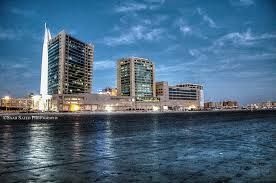
KARACHI
Karachi (Urdu: کراچی / ALA-LC: Karācī IPA: [kəˈrɑːˌtʃi] ( listen)) is the largest city of Pakistan and the capital of the province of Sindh, its largest city, as well as one of the largest and most populous metropolitan cities in the world. Karachi metro has an estimated population of over 23.5 million people as of 2013,[2] and area of approximately 3,527 km2 (1,362 sq mi),[9][10] resulting in a density of more than 6,000 people per square kilometre (15,500 per square mile).[11]
Karachi is the 7th largest[12] urban agglomeration in the world, and the second largest in the Muslim world.[13] It is Pakistan's centre of banking, industry, economic activity and trade and is home to Pakistan's largest corporations, including those involved in textiles, shipping, automotive industry, entertainment, the arts, fashion, advertising, publishing, software development and medical research. The city is a hub of higher education in South Asia and the Muslim world.[14]
Karachi is also ranked as a beta world city.[15][16] It was the capital of Pakistan until Islamabad was constructed as a capital to spread development evenly across the country and to prevent it from being concentrated in Karachi.[17] Karachi is the location of the Port of Karachi and Port Bin Qasim, two of the region's largest and busiest ports. After the independence of Pakistan, the city population increased dramatically when hundreds of thousands of Muslim Muhajirs from India and from other parts of South Asia came to settle in Karachi.[18]
The city is located on the Arabian Sea coastline. It is also known as the Uroos ul Bilaad "The Bride of the Cities" and the "City of Lights",[19][20] and the "City of the Quaid", having been the birth and burial place of Quaid-e-Azam, the Great Leader, Muhammad Ali Jinnah, the founder of Pakistan, who made the city his home after Pakistan's independence from the British Raj on 14 August 1947. According to PricewaterhouseCoopers, In 2009 Karachi had a total GDP of $78 billion with conservative projections expecting it to rise to $193 billion in 2025.[21][dead
Content



